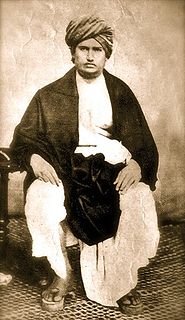A Quote by Stephen Mallinder
Even though we were influenced by American culture and music, we like the rest of Europe have been colonized with that in the post-war period. At the same time there's a sense of dirty earthiness and Europeanness and Britishness in it as well.
Related Quotes
It's important to remember that World War II was experienced very much as a continuity in that sense. Most of World War II in most of Europe wasn't a war; it was an occupation. The war was at the beginning and the end, except in Germany and the Soviet Union, and even there really only at the end. So the rest of time it's an occupation, which in some ways was experienced as an extension of the interwar period. World War II was simply an extreme form, in a whole new key, of the disruption of normal life that began in 1914.
I've been in America for almost ten years. I've had many parts of the American experience. I've been all over this country and seen many different parts of it. It's just that I'm not an American. I've never become an American. I'm talking about the whole thing-psychologically, citizenship, the whole trip. Of course I've definitely been influenced by America-I'm definitely influenced by the music and the culture.
You know, artists are influenced by other artists. We're all deeply influenced by what's around us; we don't make anything cold. Sometimes we think that we do. But within that, the most important part is that even though we're influenced, what are the levels of invention that we carry forth even as we've been influenced by something that's come before?
We know that there were so many Japanese American soldiers in World War II who were fighting in Europe despite the fact that their families, their parents were back home in American prison camps. It's savagely ironic that between themselves and the African-American soldiers, who were also segregated and didn't see the fruition of the work the culminated in the Civil Rights Act until the '60s, that these American heroes and their stories are not well known; and the fact that the 442nd/100th became the most decorated unit in U.S. history.
Though the Americans can be fooled, as they have been, and they can be propagandized, as they have been... But, as Lincoln said, "You can fool all of the people some of the time, and some of the people all of the time. But you can't fool all of the people all of the time." And so hope lies in the fact that little by little, even if the American people can be fooled, even if they continue to be fooled in the 2004 presidential election, they will gradually learn, as they have learned - for instance, in the Vietnam War and turned against the Vietnam War.
I'd been making music that was intended to be like painting, in the sense that it's environmental, without the customary narrative and episodic quality that music normally has. I called this 'ambient music.' But at the same time I was trying to make visual art become more like music, in that it changed the way that music changes.
I think that if you listen to the same exact genre of music that you play, it is so easy to be influenced by it. There will be times where we are writing a song, and then realize that it songs like something we just heard on the radio. There was a while when we were writing, that I didn't listen to music because I didn't want to be influenced.
We started America with the sin of slavery that led right into the post-reconstruction period which was the greatest period of domestic terrorism in our country's history. Then after that, we had Jim Crow emerge and just when the Jim Crow laws were ending came the onslaught of the drug war. Well, the drug war has so perniciously effected, insidiously infected communities of color that in some ways it has come full circle, and we now have more African Americans under criminal supervision than all of the slaves in 1865. This is a profoundly unjust war.



































